Closing regional links and increasing agricultural values
 |
At the event titled "Promoting Regional Links: Accelerating Economic Development", organised by the Vietnam Cooperative Alliance and the VnBusiness Magazine on October 26, speakers discussed the limits and opportunities of agricultural production in building the material regions and links between households, cooperatives, and enterprises.
Nguyen Van Thinh, vice chairman of the Vietnam Cooperative Alliance, said that the role of the parties involved in cooperation and association in the value chain of agricultural products is still limited.
| Approximately 1,600 safe agricultural product supply chains were organised with the participation of more than 300 companies and 150 cooperatives. |
Thinh showed that many cooperatives have yet to complete their role of bridging farmers and businesses.
“Farmers and businesses are not linked well enough to each other, and products must go through many intermediate parties. This leaves farmers with meagre benefits,” Thinh said.
Nguyen Thi Mai Phuong, purchasing director of the BigC/GO supermarket system operated by Central Retail said that it wants to foster the links with cooperatives to ensure stable supply sources. "However, in reality, this is difficult because of the insubstantial supply sources," Phuong said.
Meanwhile, the cooperative network is being expanded. The current cooperatives attracted 3.28 million households, accounting for about 38 per cent of the total number of households across the country.
Approximately 1,600 safe agricultural product supply chains were organised with the participation of more than 300 companies and 150 cooperatives.
“The above situations raised the importance of building regional links. Besides this, as the socioeconomic situation in the country and the world is still volatile, the issue of regional links becomes even more urgent,” Thinh said.
To promote agricultural product consumption, the Agrotrade Vietnam under the Ministry of Agriculture and Rural Development, proposed to build key five material regions with a total area of 166,800 hectares.
The first region is the northern mountainous fruit tree region with an area of 14,000ha covering the northern provinces of Son La and Hoa Binh.
The second one is the region of timber material planted with sustainable certification, which covers an area of 22,900ha in the central provinces of Quang Tri and Thua-Thien Hue.
It is necessary to build the Central Highlands coffee region with an area of 19,700ha at Gia Lai, Kon Tum, Dak Lak, and Dak Nong provinces.
The fourth region will focus on planting rice, which covers an area of 50,000ha in the Mekong Delta provinces of An Giang and Kien Giang. The fifth one is named the Dong Thap Muoi fruit tree area covering 60,200ha at Dong Thap, Long An, and Tien Giang provinces.
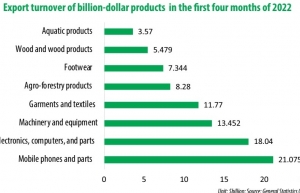 | Export drive catering to turnover targets Vietnam is making efforts to pave the path for exporting agricultural products in order to reach $50 billion in turnover for the whole year. |
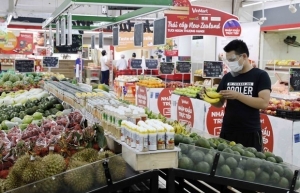 | US market opening up for agri-goods With the demand growing, the United States is maintaining its position as the largest export market of Vietnamese agricultural products, which are increasingly advancing in quality. |
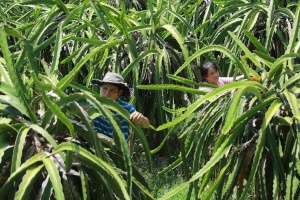 | Agriculture continues to spearhead backbone of economy Minister of Planning and Investment Nguyen Chi Dung emphasised that Vietnam's agricultural sector has seen the strongest development ever, transforming from producing enough food to meet the needs of the people to exporting at a high percentage. |
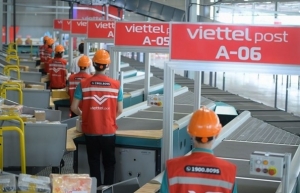 | New strategy promotes agricultural products on e-commerce platforms The recently-approved National Postal Development Strategy to 2025 with a vision to 2030 targets 100 percent of agricultural households using e-commerce platforms to move their products. |
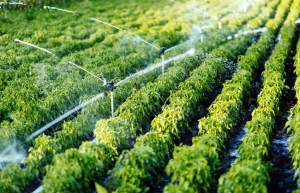 | Agricultural circular model gains traction With Vietnam accelerating the development of a circular economy, many businesses are attempting to apply this model in agriculture – but barriers to approval still stand in the way for some. |
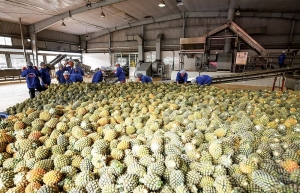 | Processing prevents EU agro-increase While the sharp increase in food prices across Europe has opened up prospects for Vietnamese agricultural exporters, processing issues remain at the forefront. |
What the stars mean:
★ Poor ★ ★ Promising ★★★ Good ★★★★ Very good ★★★★★ Exceptional
Related Contents
Latest News
More News
- Agro-forestry and fisheries exports jump nearly 30 per cent in January (February 09, 2026 | 17:45)
- Canada trade minister to visit Vietnam and Singapore (February 09, 2026 | 17:37)
- New tax incentives to benefit startups and SMEs (February 09, 2026 | 17:27)
- Vietnam forest protection initiative launched (February 07, 2026 | 09:00)
- China buys $1.5bn of Vietnam farm produce in early 2026 (February 06, 2026 | 20:00)
- Vietnam-South Africa strategic partnership boosts business links (February 06, 2026 | 13:28)
- Mondelez Kinh Do renews the spirit of togetherness (February 06, 2026 | 09:35)
- Seafood exports rise in January (February 05, 2026 | 17:31)
- Accelerating digitalisation of air traffic services in Vietnam (February 05, 2026 | 17:30)
- Ekko raises $4.2 million to improve employee retention and financial wellbeing (February 05, 2026 | 17:28)

 Tag:
Tag:
















 Mobile Version
Mobile Version